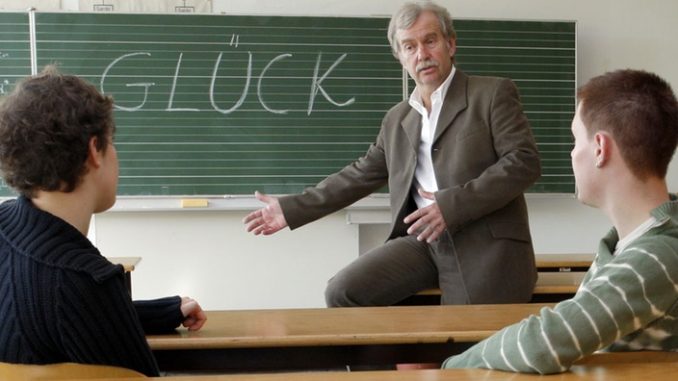
Tanja Zech from Deutschland.de sat down with Ernst Fritz-Schubert, the creator of happiness as a subject alongside math and science at his school in Heidelberg, for an interview. Today he is passing on this concept to other teachers at his educational institute.
Mr Fritz-Schubert, what gave you this idea? Do children in Germany need to be taught how to feel happy?
At the time I had already been teaching for 30 years, and it became clear to me that children did not feel happy in the place called school. And yet it should be a school’s job to awaken and maintain the pleasure of learning – not simply to promote the achievement of academic goals. I have the feeling that school gradually stifles our curiosity. In contrast to all the insights of psychology, many teachers treat their students like ‘learning machines’ to reproduce prescribed contents. But when teachers see themselves as treasure hunters rather than fault finders, this attitude has positive effects for both sides.
I was mainly concerned about disadvantaged children who were so negatively influenced by school that they lost their enthusiasm to learn. Happiness as a school subject is designed to strengthen the personality. Numerous studies show that people who are happy and contented, argue less, are healthier, more receptive and more creative.
What is this school subject about?
It’s about contentment and life skills – that’s the aim of happiness as a school subject. This includes finding a purpose, feeling a sense of security, social relationships, self-determined actions, self-acceptance, coming to terms with your environment, and personal development.
This can be divided up into learning steps with the help of four questions: Who am I? What do I need? What am I capable of? What do I want? The students learn to recognize their dreams and needs, and then to formulate aims and find ways of realizing them. But they also learn the meaning of failure, in other words losing. It’s important to learn early on how to deal successfully with defeat, to see it as a chance, and to be able to overcome future challenges.
Read the full interview onDeutschland.de.